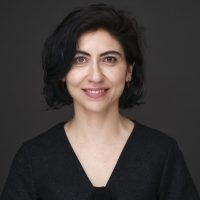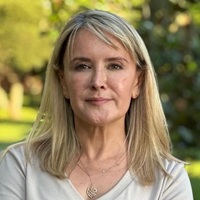Events
-
Turkey’s Culture Wars –– Culture, Politics, and Society Under Autocratization
University of Turin, 24–31 August 2025
The 2025 CEST Summer School explores the politics of culture wars—deep-seated ideological conflicts over values, identity, and social norms that divide societies along political, religious, or cultural lines. Our goal is to bring together junior academics and PhD candidates examining the intersection of culture, politics, and society in Turkey, including its diasporas and related communities in neighboring countries.
-
Who Owns the Nation? Imperial Imaginaries and Cultural Resistance in Contemporary Turkey
University of Naples L’Orientale, 14-16 January 2026
This CEST Symposium invites critical reflections on the production and contestation of cultural hegemony in Turkey, with a focus on the interplay between imperial imaginaries, Islamist identity politics, and counter-hegemonic interventions by opposition actors, civil society, and cultural producers.
Application deadline: 6 October 2025
Young scholars especially encouraged to apply.
Past Events and Publications
Past Symposia
What role, if any, can norms regarding democracy, constitutionalism and human rights play in an era of increasing geopolitical conflict and transactionalism. What spaces exists for scholars, activists, lawyers and others in Turkey to intervene in this authoritarian slide, not the least on the subnational level? What modalities remain for European actors and institutions to promote democracy and the rule of law in Turkey when they are struggling with democratic challenges at home?
SUITS co-convenes the Consortium for European Symposia on Turkey (CEST) 2024 Workshop in Stockholm with the Center for Applied Turkish Studies (CATS) Network to discuss Turkey-EU Relations
To what extent and how do the anchors of state and party to society fuel, hinder or refract relations among them? What roles are played by the social anchoring of institutions and parties in exercising, consolidating or contesting power and government, and what forms does that take? To what extent do these anchors take various shapes and have divergent implications in diverse social fields? To what extent can we speak about a “hegemonic bloc” that extends throughout state, party, and society – and throughout various social fields?
Between co-optation and various forms of repression, what sustains resistance and opposition? How do programmatic and ideological differences account for oppositional disunity? How can civic and political resistance cooperate and complement each other? Which directions may post-authoritarian transitions take?
The aim of this conference and symposium was to further discussion about:
- critically reconstructing the conceptualization of the Mediterranean as a space/discourse of belonging and identity narratives, of cultural and political connections, and as (geo)political space;
- examining relevant connectivities, linkages and ruptures between Turkey and other Mediterranean countries;
- discussing the role of networks and movements of people, both historically and in present, across the Mediterranean and in connection with Turkey;
- engaging with the recent rediscovery of the Mediterranean in Turkey’s geopolitical imagination in the context of its international relations.
This meeting investigated and discussed the various forms of “cultural engineering” through history, the different discourses on culture and the numerous practices of articulating, performing and producing culture as well as cultural identities/resources – be it in line with or against the cultural policy of the state. Turkey’s official cultural policies aimed at Turkish citizens living abroad were also a focus of the symposium.
Past Summer Schools
This Summer School explored the politics of culture wars—deep-seated ideological conflicts over values, identity, and social norms that divide societies along political, religious, or cultural lines. In additional to cultivating discussions and expanding knowledge, the summer schools seek to bring together junior scholars, provide opportunities for mentorship and collaboration with senior scholars and support new scholars in developing essential academic skills
The third CEST Summer School was dedicated to the connectivities between Turkey and Southeast Europe and particularly to Turkey’s complex and contested presence in the Balkans. We brought together PhD candidates and young scholars working on the multi-level and multi-scalar linkages between Turkey and Balkan countries with significant Muslim communities. Our perspective is interdisciplinary and informed by anthropological approaches, history, as well as political science and international politics research as long as they share an in-depth / ‘politics from below’ perspective.
Publications
Limits of autocratisation: actors and institutions of democratic resistance and opposition. In Third World Quarterly 46:2 (2025). Guest editors: Bilge Yabanci, Karabekir Akkoyunlu and Kerem Öktem
In Diyâr: Zeitschrift für Osmanistik, Türkei- und Nahostforschung. November 2021
Social Coexistence and Violence during Turkey’s Authoritarian Transition. In Southeast European and Black Sea Studies, 2021
Exit from Democracy: Illiberal Governance in Turkey and Beyond. Routledge 2017. Edited By Kerem Öktem, Karabekir Akkoyunlu
Rethinking Power in Turkey through Everyday Practices in Anthropology of the Middle East (13:2), 2018
People

Kerem Öktem
CEST Chair
Professor of International Relations at Università Ca' Foscari Venezia

Paul T Levin
CEST Director
Director, Stockholm University Institute for Turkish Studies

Jenny White
CEST Vice Director
Professor Emerita, Stockholm University Institute for Turkish Studies

Lea Nocera
CEST Member
Associate Professor in Turkish Studies, University of Naples L'Orientale

Yavuz Köse
CEST Member
Chair for Ottoman and Turkish Studies, University of Vienna

Bilge Yabanci
CEST Member
Ikerbasque Fellow and Ramón y Cajal Fellow, University of Deusto, Bilbao

Joakim Parslow
CEST Member
Assistant Professor, University of Copenhagen

İpek Yosmaoğlu
Corresponding Member
Crown Professor of Middle East Studies, Northwestern University
